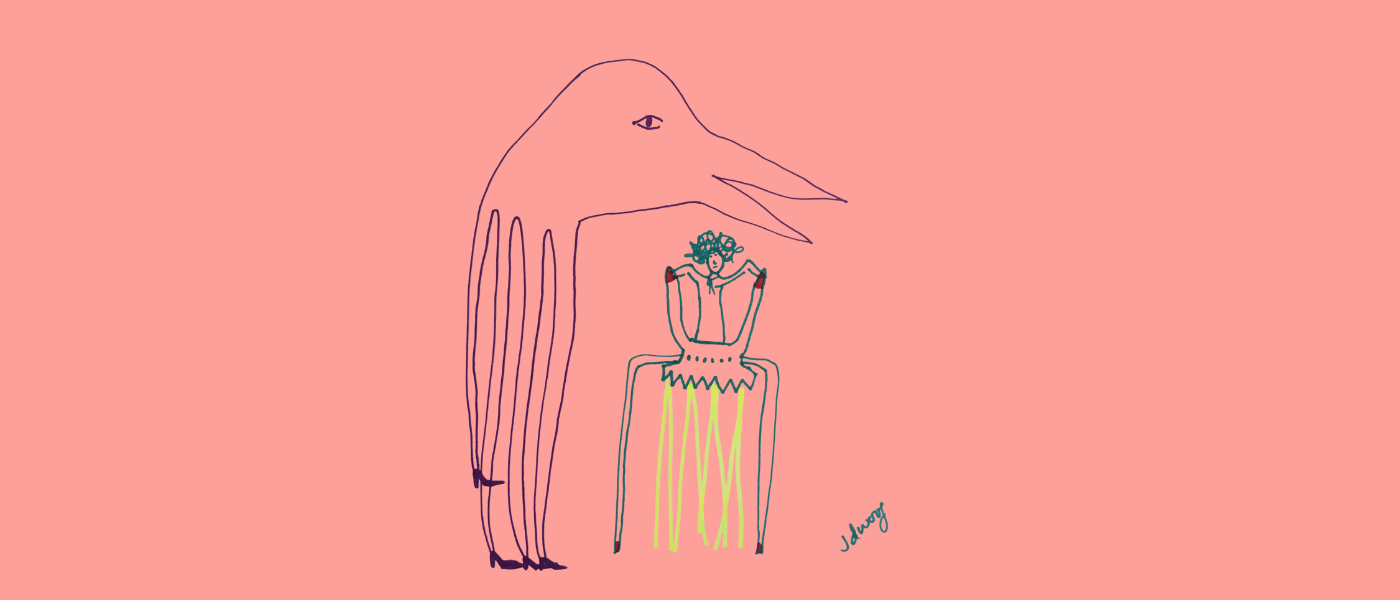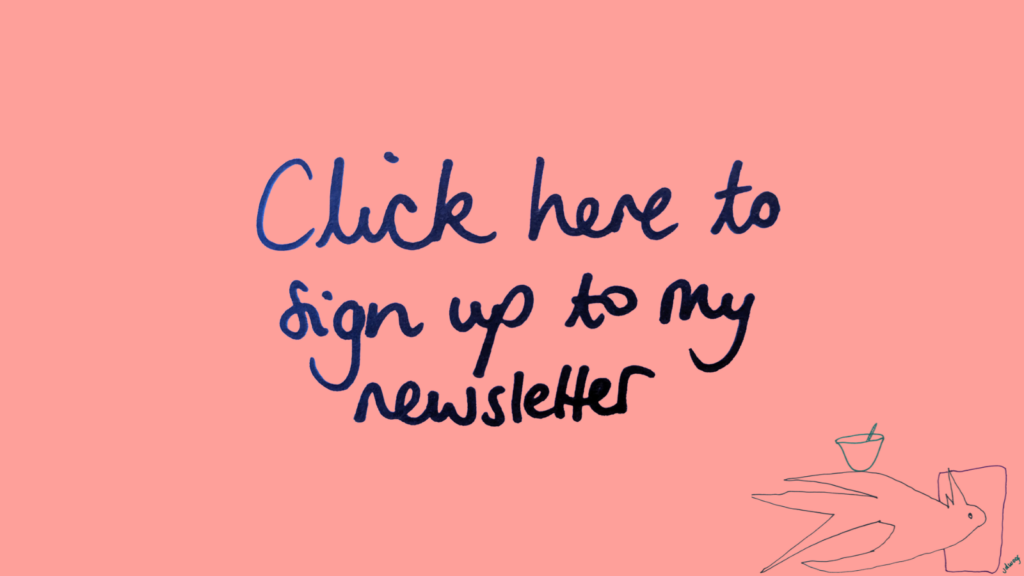Beth and I are colleagues at RISE. The first time I met Beth, in a room of people she didn’t know, she shared about her experiences with anxiety. I appreciated her courage in doing so. By speaking about things like this we make them easier to manage, less of a taboo or something to be ashamed about. I asked if she would have a chat with me about her experiences.
Jo: I am interested to hear about how you have experienced anxiety
Beth: It was an absolute shock. In my view, I was the least likely person to ever get diagnosed with anxiety because I was bright, happy, busy and recently married. Life was good. I was a psychologist for goodness sake! My family have heart conditions, so when I started to get symptoms, my doctor did a really comprehensive check. He said, “Look, you’re absolutely fabulous, physically, so this might be psychological.” I yelled at him, “You’re not taking me seriously. You’re just writing me off.” I slammed the door so hard that everybody in the waiting room looked up at me, shocked. In the car I was in floods of tears, I home dangerously fast. And when I stopped the car outside my house, I kind of laughed, “Okay. There’s the evidence. He might be right.” I called him that afternoon and apologised.
Now, I realise it didn’t come out of the blue and there are lots of triggers and other things that led to it. I’m quite lucky, Jo, in the respect that I’ve done years of self-work, not just through my psychology and work side of things, but also in self-development and part of my spiritual school. I have lots of different tools and ways of reflecting and understanding. So quite quickly, having realised what this was about, it shifted me into a self-reflective period.
One thing that was incredibly frustrating was how long things took. The GP started a process to get me some support. Six weeks later, I finally got a call from somebody to do triage and find out whether I was about to commit suicide or hurt somebody. They established that I wasn’t, but that was six weeks later. They put me on a waiting list for therapy. I wasn’t offered an appointment for another 12 weeks. So that was 4-5 months from diagnosis. Fortunately, I had the money to get my own support so I was already working on it. But I would imagine that other people don’t have that ability or confidence to go and seek support themselves. Three months in the world of anxiety is horrendous, as we both know. If you’re left alone without any support network, you just get worse and worse. So it worries me a lot about the provision of support that is out there for people with anxiety. What was your experience?
Jo: I self-referred to a local mental health charity and the triage stage happened quite quickly, but from that point, it took a few months until I saw a therapist. I was offered five sessions of CBT. Which was helpful, but I’m really curious about other types of therapy that are out there.
Beth: I find CBT a really interesting approach to helping people with anxiety. We know anxiety is driven by thought processes, I call it my monkey mind. For me, CBT works in some respects, because it asks us to examine the thoughts that we’re having and relate with them in a different way. But it didn’t work for me. I have a mind that likes to analyse, to think things through. If I have a problem I journal and work with myself to say, “Okay, what’s going on here? How can I shift that? How can I change that?”
This is very CBT in process, but one of the things I realised about anxiety was that it’s one of the few things that you cannot think your way out of because it’s the thinking process that’s creating the anxiety. So if you continue to try and think your way out of it, you’re perpetuating the self-destructive process. I found CBT helpful to be able to step back and recognise what was going on with my thoughts, but it didn’t break the cycle that was causing my anxiety. Meditation led me to mindfulness-based CBT, which really helped.
I always joke nowadays that I’m a recovering control freak. Elements of my control freakishness displayed itself in always working to be in command of my thoughts. Part of my anxiety was coming from this overworking – and mindfulness helped me to become finally comfortable with things just as they are and to allow the thoughts to happen and just say “Yup, you’re happening, but I’m just acknowledging you and observing you.” That was the way I broke the back of the challenge.
Jo: Was this something that the therapist helped you with?
Beth: The original therapist was CBT-based. I did a lot of reading around the subject – this is a really interesting thing for somebody with anxiety because so much of the stuff that’s readily available online, are people talking about how crappy anxiety is and how little help they’re getting, as well as all the symptoms. I then started thinking “Oh God, I’m feeling that too”, and that was making it even worse. This is why mindfulness helped a lot. I read a couple of fabulous books, a particular one called ‘Mindfulness in a Frantic World’.
I found a therapist who was mindfulness-based, who allowed me to start to process some of the much deeper things that triggered the anxiety. I was able to work with those in a much more relaxed, emergent way with this mindfulness-based practitioner, rather than a kind of more clinical CBT approach.
Jo: It’s that digging back into the past that I would love to do at some point.
Beth: If you think about us as cups, we have only so much water we can hold. By water, I mean things we’re thinking about; stresses, pressures, joy, love, life. As a human being, there’s only so much input we can take. As we get more and more input, our body starts to kick into that fight or flight process. We start to feel a bit more heightened, nervy, aware, more horizon-scanning. That’s a great process because that’s how we know lions and tigers are about to come and eat us and we’re preparing ourselves. In day to day life, all these extra things keep popping into our cup and we get more aware and heightened. Our cup gets full. And one extra thing that drops into it means that we’ve got too much sensation hitting us. In my experience, my body would either go into panic attacks or numb out.
I don’t know if you ever experienced that through anxiety – I felt like I was walking through life in a haze. I’ve been having conversations and felt removed from them. And I’d be walking through the supermarket and feel stoned like I wasn’t part of the world. And I realise that was the body kind of saying “too much input!” – I need to dial down this input coming in. And that’s what the haze and fog come from.
Jo: I was actually at a wedding recently where I felt really dazed. Nothing specifically was bothering me. Haze is the perfect word for it. I’ve never spoken to anyone or heard anyone describe that before but it is something I have noticed, particularly when I am in very crowded places, around a lot of people.
Beth: It felt like I was sleepwalking through my life. That used to panic me because I valued my vitality and connection with life. I was starting to understand the psychological process that was going on, which was my body saying “too much input, dial it down”. Understanding this stopped me panicking about it. I was able to then think “Oh there’s an interesting thing, the haze is appearing. I need to be doing some stuff to remove input out of my cup. I need to be doing stuff to bring my water level down so that my body doesn’t need to switch myself off in defence.” The book “At Last a Life” by Paul David describes this process.
We can train ourselves to make our cups bigger. The more stress we experience, the more our body gets used to dealing with it. Before I went to university, I went to Alton Towers with a bunch of friends and I hated some of the rides, it was just too much input. I felt sick and scared. I then learned to skydive and absolutely adored it. And two years later, having done about 500 skydives, I went back to Alton Towers and had a completely different experience. I had trained my body to be better at experiencing adrenaline and stress and still operate. So we know bodies can get accustomed to that, but there is still a finite limit. I reached a point in my life where I’d pushed that finite limit. Do you know what prompted you to tip over the edge into anxiety?
Jo: When I was doing an MA in Budapest I was probably at my most anxious. I found everyone else on my course intimidating from their life experience and knowledge. I thought they were really good at speaking and explaining their opinions. I was in small seminars where a big percentage of my grade was based on my contributions in class. I felt I couldn’t speak and I knew I had to. The physical sensations I was going through were really hard to deal with. I’d think of something to say and then my heart would start racing and I would be very, very flustered. Then waiting for my turn to speak meant my heart and mind raced more. I would either give up, or I would speak and over-analyse afterwards.
I have had panic attacks which I think most other people would not have noticed. They first happened a couple of times during my undergrad degree, and a few times since then. After completing my MA, I realised how held back I felt by the anxiety, particularly in groups of people. I’d be really, really quiet. I wanted to do something about it.
Beth: I think with anxiety, there’s a couple of different levels. There’s anxiety as a symptom, for the actual things that we’re feeling which are the expression of what’s going on. And then there are the triggers to the anxiety, the extra things that are filling our cup, or an experience. And then there are the underlying deeper things that are allowing anxiety to get a purchase with us that lead to a cup being too full. If you think of anxiety as an oyster, the grit around which the anxiety is formed.
To relate that, to me, my anxiety symptoms were this haze, not wanting to talk with people, not wanting to be in big groups, scared to leave the house, being scared people would notice that I was not on this planet. I did have panic attacks, minor ones that no one probably would have noticed. Then there were the triggers to my anxiety, which were the things that were filling my cup up too much. Each month I was spending a couple of days in Abu Dhabi, a couple of days in New York. I was in a new marriage and had challenges going on with family. There were also underlying things that had influenced my psychology make up, such as the experiences I had when I was younger. This need to control was a really big, deep element around that. The kind of things the anxiety was triggering around were feelings of self-worth and “Am I good enough?”
For me, thinking about it at those three levels was quite a useful way of figuring out where I needed to do the work. I needed to do some work about how I manage the symptoms and stop stressing about them and over-controlling them. I needed to do some work about turning down some of the stuff that’s dripping in. But I also need to do some fundamental work on myself to understand some of these bigger patterns that are allowing the top two layers to happen.
Jo: With CBT homework, you might look at your week ahead and find something that you are anxious about. You would then set up some experiments for that to challenge your predictions about how the situation will go and reflect on them after to see what actually happened. This helped me be aware of small successes and think about situations before they happen rather than just going into them and then feeling rubbish afterwards but never really reflecting on what was going on. I was more mindful and around my intentions.
The confidence courses I took part in were very helpful. There were components of improvisation, breathing exercises and drama. I think improvisation helped make that cup a little bit bigger. With improvisation, you might feel uncomfortable but you just experience it rather than trying to avoid it and learn it isn’t that bad. We were practising speaking without overthinking, so regularly practising letting go of control.
Beth: For me, there are two different types of anxiety. There’s what’s known as generalised anxiety disorder. And then there’s anxiety about specific triggers. I think it’s important that we’re aware of both because with specific ones, we can find mechanisms and tools to work with it. With generalised anxiety, one can feel a bit lost in it. It’s like your whole life is challenging. If you’ve got something specific that you know is triggering, we can go “right here are some ways in which we can shift our thoughts around it”. But how do you fix the sheer fact that you don’t want to leave the house because you’re worried that people are going to see that you’re in a haze? For some people, it’s crippling, and it is the entirety of their life. For other people like me, it’s a phase or times that I slipped into. Now, I’m aware of the triggers and warning signals that I might be moving into that space.
I always laugh that being a recovering control freak, the universe gave me the only thing I couldn’t control my way out of. So my go-to when anything’s been wrong with me, as I said, is to think about it and sort it. But that process failed around my generalised anxiety because all I was doing was perpetuating the process. The only thing I could do was accept what was happening to me and observe it and be okay with the fact that I couldn’t go out that day, or be okay with the fact that I was in a client meeting and my heart was running 50 miles an hour. I thought that everybody would be able to notice but I learnt to think, “It’s okay if they notice. You are still good at what you do. So carry on what you’re doing.” That was a huge change for me in my life to move from being okay with whatever is emerging, versus trying to find out tools or mechanisms or ways around what I was feeling.
Jo: It’s learning to sit in discomfort, which is a hard thing to get used to doing.
Beth: There’s a great phrase, teaching around the difference between willingness, willfulness and will-lessness. Will-lessness is when we just give up and we step back and there’s power in that sometimes. Willfulness is when we just go for it, “I’m going to make it happen”. They are polar opposites and both are destructive in some respects. There’s a middle ground of being willing – “I’m not going to switch off, I’m not going to shove it away. I’m not going to pause my way through it. I’m just going to walk gracefully and observe and be willing for anything that might come in around that”. It’s a very different energy.
Click here or here to find out more about Beth and her work.


